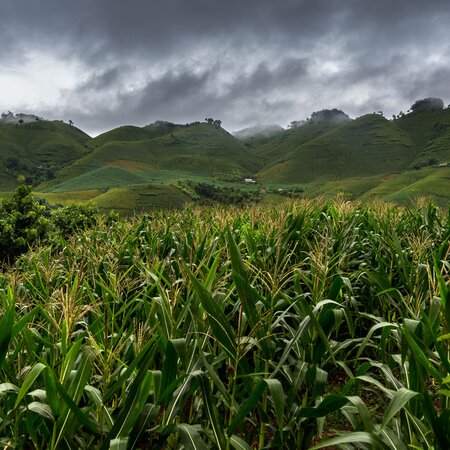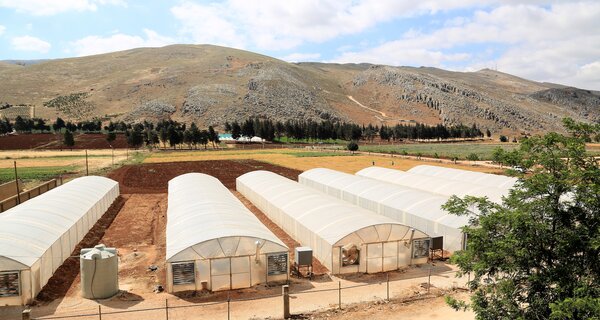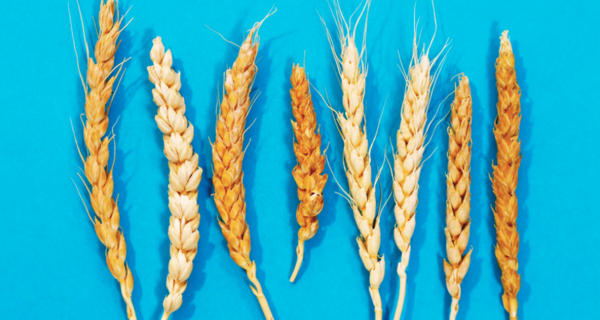Ahmed Amri: The Singing Scientist of Morocco
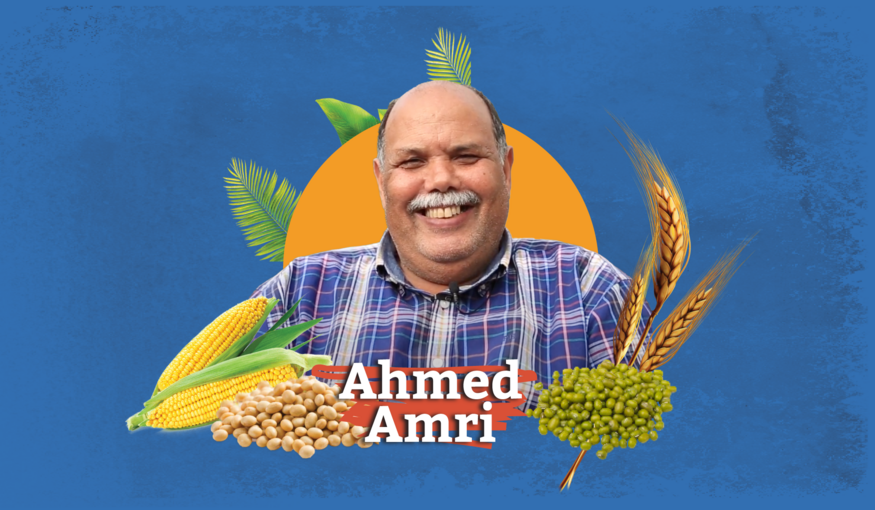
11 March 2024
In this installment of our Seed Heroes series, we celebrate the life and achievements of Moroccan scientist Ahmed Amri, a pioneer of seed conservation in the Fertile Crescent who helped rescue ICARDA’s genebank during Syria’s civil war.
Few scientists know the Fertile Crescent quite like Ahmed Amri.
The eminent Moroccan scientist has dedicated four decades to studying the plants growing in this region of the Middle East, where agriculture was born more than 10,000 years ago.
As head of genetic resources at the International Center for Agricultural Research in the Dry Areas (ICARDA), he has explored dryland areas spanning from North Africa to the Caucasus and Central Asia in search of plant varieties, both wild and cultivated, with traits that can be used to improve our crops in response to the global challenges of climate change.
Collecting, characterizing, conserving and distributing the seeds of landraces and wild relatives of key crops – cereals, legumes and forages – have all been part of Amri’s mission, which began in the genebank of Morocco during the 1980s and continues today after more than a decade as ICARDA’s top plant genetic scientist.
But his main focus has been the use of wild relatives of wheat and barley to transfer their tolerance of drought, heat and salinity, as well as resistance to major diseases and pests, to new cultivated varieties. Amri has released more than 20 varieties of barley and helped develop breeds of durum and bread wheat that are resistant to Hessian fly, a pest that destroys cereal crops.
The Syrian Civil War
At times, Amri’s commitment to dryland crop diversity has transcended the usual demands of his profession and even placed his own safety at risk. In 2011, the outbreak of the Syrian civil war prompted him and his ICARDA colleagues in Aleppo to hatch a plan to save the remaining 15,000 seed samples that had not yet been backed up outside the country. The gradual evacuation of 98 percent of the genebank’s total holdings to other host nations and to the Svalbard Global Seed Vault led to the eventual relocation of the ICARDA collection’s entire operation to Morocco and Lebanon.
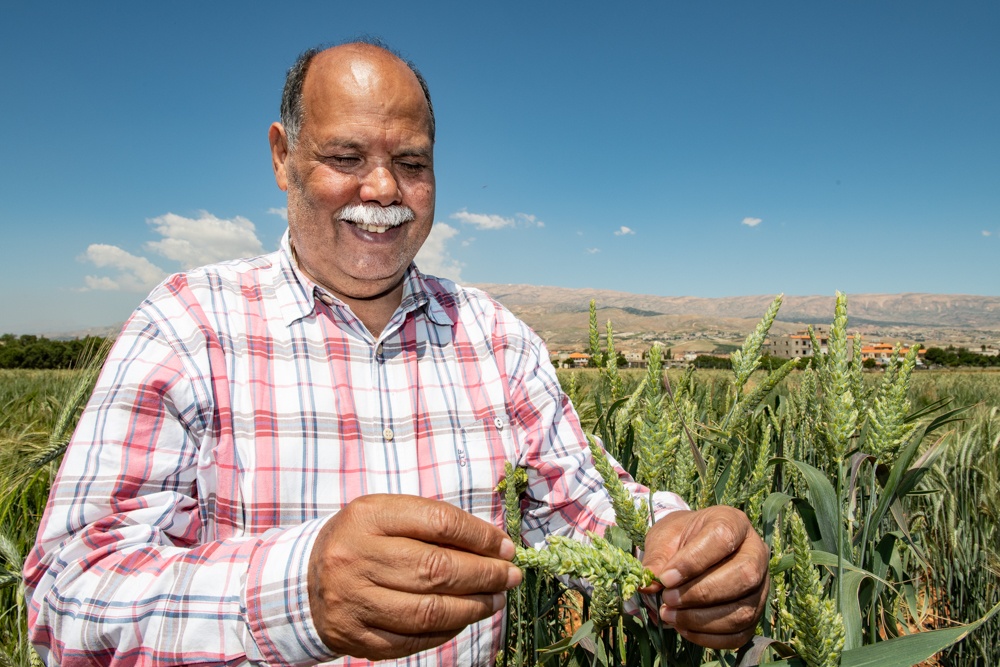
2018. Dr. Ahmed Amri, Head of the Genetic Resources Unit, reviews seed regeneration plots at the American University of Beirut’s AREC station near ICARDA's Terbol station in Lebanon's Beqaa Valley. Photo: Michael Major/Crop Trust
“All the non-Syrian genebank staff had left the country except for six of us who stayed until the last days,” Amri says. “For a month before we left, there were bombs falling in Aleppo. We had hoped tanks wouldn’t reach our location in Tel Hadya just outside Aleppo, but then fighting reached there too, so we had to leave.”
After escaping the war, ICARDA began to regenerate the active collection that had been conserved in Aleppo, making it possible to distribute seeds again upon request. This involved raising funds for equipment, labs and cold rooms, as well as hiring and training new staff. ICARDA also started to withdraw seeds from Svalbard in 2015.
“We were the second genebank to deposit our holdings in Svalbard,” Amri says. “That was something I am proud of because it allowed us to access almost 83 percent of our holdings in one place. Since 2012, when we left Syria, we have been able to access seeds from there to rebuild our genebank.”
Early Years
Amri graduated from high school in the coastal city of Agadir in 1974. As a young man, he worked the fields of his family’s farm.
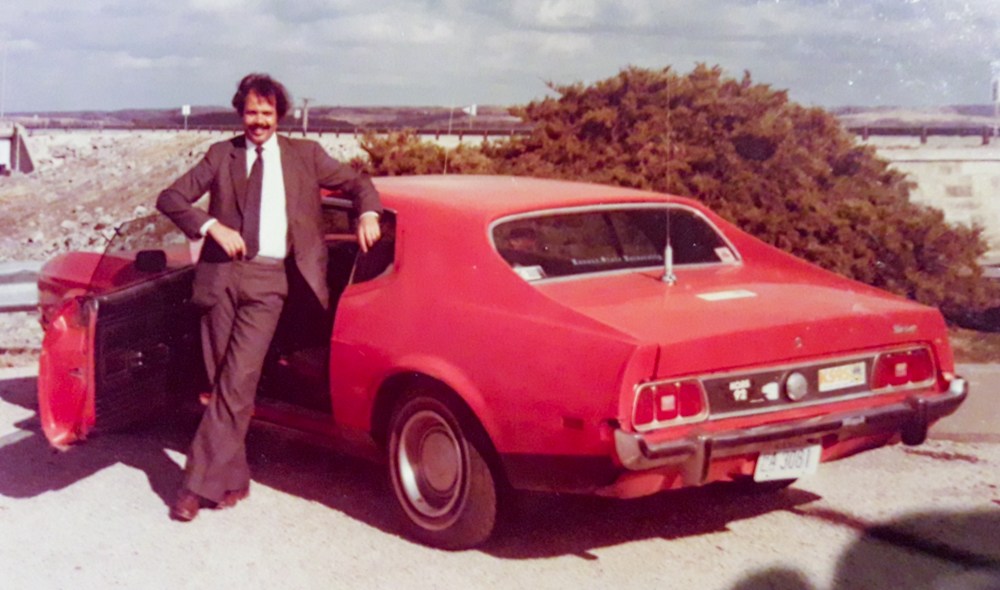
1984. Ahmed as a PhD student at Kansas State University. Photo courtesy of Ahmed Amri
His interest in genetics and plant breeding was sparked as an undergraduate student in Rabat at the Hassan II Institute of Agronomy and Veterinary Sciences, which had a small genebank with a collection of medics, forage legumes from the Medicago genus. In 1980, he earned a master’s degree in agronomy and plant breeding from the institute after completing two years of course work at the University of Minnesota.
Amri’s professional career took off when he accepted a position as a barley breeder with INRA – the Moroccan public research institute dedicated to agricultural science – and became head of its cereal research program in 1987.
From Morocco to Kansas
While he was at INRA, the young Moroccan scientist completed a doctorate at Kansas State University, where he developed new wheat varieties resistant to Hessian fly.
After nearly 20 years with INRA, he joined ICARDA as a regional coordinator for a project promoting on-farm conservation and sustainable use of dryland agrobiodiversity in Jordan, Lebanon, Palestine and Syria. In 2008, Amri was promoted to lead ICARDA’s genetic resources unit and serve as deputy director for biodiversity and integrated gene management.
ICARDA’s genebank holds more than 150,000 accessions, mostly traditional landraces and wild species. About two-thirds were collected from dryland areas around the world.
Today, Amri continues to support ICARDA’s genebank, helps review other genebanks and is a mentor to postgraduate students. His legacy is ensured by the dedicated teams he helped build in Morocco and Lebanon, who are continuing to ensure the efficient conservation of genetic resources, he says.
With a legendary passion for music, Amri is still known for breaking into song at the end of meetings and belts out a range of traditional Berber tunes upon request at community events in Morocco.
“I also play the flute and drum. Who knows, if I had learned to play the banjo, maybe I would not have continued as a breeder,” he jokes.
Timeline:
- 1974: Graduates from high school in Agadir, Morocco
- 1980: Completes joint master’s degree in plant breeding (U.S. and Morocco)
- 1989: Awarded Ph.D. in genetics and plant breeding from Kansas State University
- 1980–1999: Barley breeder, cereal pre-breeder, head of cereal research program at Institut National de la Recherche Agronomique (INRA) in Rabat, Morocco
- 1999: Joins ICARDA to lead dryland agrobiodiversity project in Aleppo, Syria
- 2001: Becomes ICARDA regional coordinator for West Asia in Amman, Jordan
- 2005: Appointed head of ICARDA country office in Tehran, Iran
- 2008: Begins tenure as head of ICARDA Genetic Resources Unit
- 2008–2014: Oversees ICARDA shipments to Svalbard Global Seed Vault
- 2015–2019: Relocates ICARDA genebank from Syria to Lebanon and Morocco during Syrian civil war; reconstructs active and base collections
- 2019–present: Honorary head of ICARDA Genetic Resources Unit and ICARDA Resident Representative in Morocco

